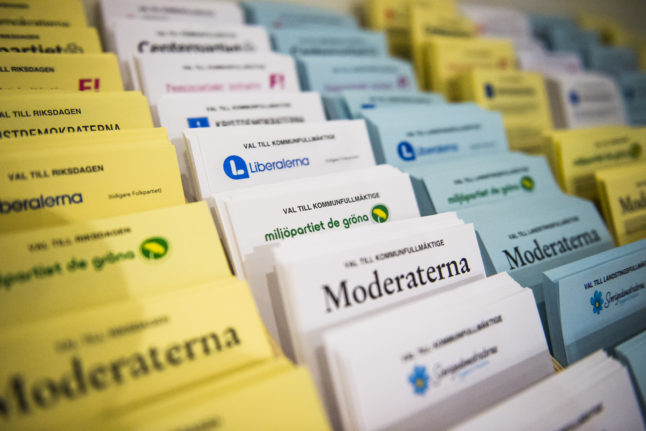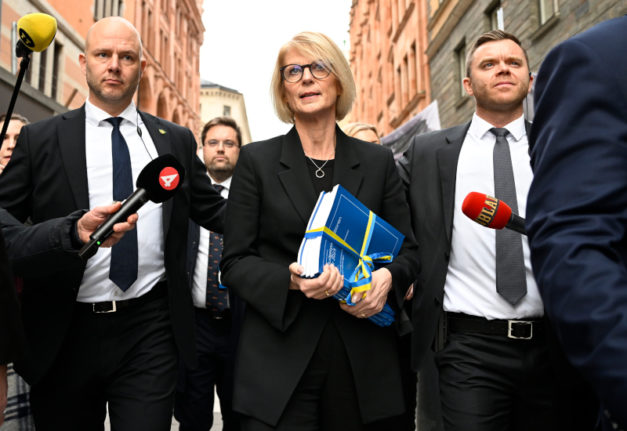Almost 1.2 million foreign voters – 200,000 more than in the last election in 2018 – will be eligible to vote in Sweden’s parliamentary election in September, according to Statistics Sweden.
The total number of voters eligible to vote in the parliamentary elections is estimated to be around 7.5 million, according to Statistics Sweden. This is an increase of 180,000 since 2018.
To vote in parliamentary elections in Sweden, you must be a Swedish citizen over the age of 18 who lives or has lived in Sweden at some point in your life.
However, for regional and municipal elections, you may have the right to vote even if you’re not Swedish. Firstly, you must be over the age of 18 and live in the region or municipality where you want to vote.
If you’re a citizen of another EU country, Iceland or Norway, you can vote in regional and municipal elections in Sweden no matter how long you have lived in Sweden. If you come from a different country outside of the EU, you can vote in these elections if you have lived in Sweden for at least three years.
- READ MORE: How to vote in the 2022 Swedish election
You must be listed on the electoral roll in the municipality or region where you want to vote – this information is taken from the Tax Agency’s records 30 days prior to the election, so in practice you must be living in the area in which you wish to vote 30 days before the election is held to make sure your name will be on the electoral roll.
According to Statistics Sweden, the number of foreign citizens eligible to vote in municipal or regional elections in 2022 has increased by 130,000 since 2018, to around 670,000.
But how could foreign voters impact the outcome of Sweden’s elections?
According to public broadcaster Sveriges Radio, voters born abroad are more likely to vote “red” – meaning they’re more likely to vote for the Social Democrats or the Left Party. This could translate into more votes for these two parties in September’s election.
In the last election, the Social Democrats received 38 percent of the vote among foreign-born voters, ten percent more than their overall figure of 28 percent.
However, this group are also less likely to vote when compared with the rest of the population, which could limit the effect foreign-born voters have in the 2022 Swedish election.



 Please whitelist us to continue reading.
Please whitelist us to continue reading.
Member comments